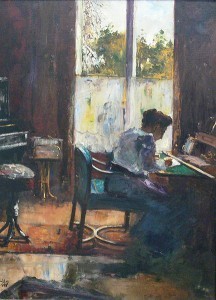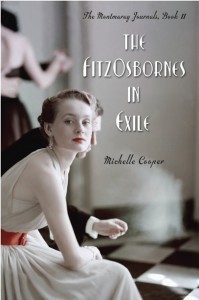Michelle Cooper's Blog, page 34
August 22, 2011
'Dated' Books, Part Four: Police at the Funeral
When I read books written in the past, I try to keep in mind LP Hartley's idea that
"The past is a foreign country: they do things differently there".
That's what makes visiting those books so interesting. I can't help noticing the characters' (or the author's) different attitudes to race, gender and social class, among other things, but I don't tend to get annoyed about the attitudes.
Except when I'm reading a Margery Allingham book.
Right, so my friend H, who shares my love of 1930s British literature, recently acquired some of Allingham's crime novels. H loved them. I just had to read them, she informed me, because they were so charming and funny. She said she'd send me two of the best ones, although she did warn me that they were "totally politically incorrect". This turned out to be the understatement of the decade.
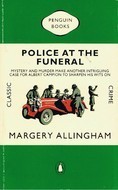 Police at the Funeral, the first Allingham book I read, is actually the fourth in a series featuring Albert Campion, gentleman private investigator. It was first published in 1931, although the edition I read was published in 1965. Apparently Campion is meant to be either a spoof of, or a homage to, Lord Peter Wimsey, and certainly both of these characters are aristocratic, independently wealthy, clever, skilled in martial arts and the use of various weapons, and able to solve the most puzzling mysteries using the tiniest and most ambiguous of clues. In Police at the Funeral, Campion is summoned to Cambridge by an old friend, whose fiancée's family has been involved in what appears to be a murder. The ancient family matriarch wishes to avoid any hint of scandal and asks Campion to do what he can to solve the crime, or at least, cover it up. Pretty soon, family members are dropping like flies, getting killed in various bizarre ways, and Campion is the only one who can save the family from extinction, or even worse, social disgrace!
Police at the Funeral, the first Allingham book I read, is actually the fourth in a series featuring Albert Campion, gentleman private investigator. It was first published in 1931, although the edition I read was published in 1965. Apparently Campion is meant to be either a spoof of, or a homage to, Lord Peter Wimsey, and certainly both of these characters are aristocratic, independently wealthy, clever, skilled in martial arts and the use of various weapons, and able to solve the most puzzling mysteries using the tiniest and most ambiguous of clues. In Police at the Funeral, Campion is summoned to Cambridge by an old friend, whose fiancée's family has been involved in what appears to be a murder. The ancient family matriarch wishes to avoid any hint of scandal and asks Campion to do what he can to solve the crime, or at least, cover it up. Pretty soon, family members are dropping like flies, getting killed in various bizarre ways, and Campion is the only one who can save the family from extinction, or even worse, social disgrace!
This leads to the first way in which this book is dated. I know the British class system continues to exist in the twenty-first century, but thank Heavens it's not as bad as it used to be. Almost all of the characters in this book accept that their position in life is due to the social class into which their parents were born, and that this is how it always has been, and always should be. (The sole exception to this is one of the villains, who comes to the violent end he 'deserves'.) In this book, working-class characters are consistently depicted as either ugly and violent; ugly and stupid; or ugly but amusingly foolish. In fact, Campion, supposedly the smartest person in the book, firmly rules out the notion that any of the servants of the household could have been involved in the murders. Only someone from the middle or upper classes would have the brains to plan a crime, you see.
But it's not just the working classes who are stupid and unlikeable. There are also the (upper-middle class) women, who are all either hysterical, shrewish or insane. There is one female university student who seems reasonably sensible, but she doesn't do much except help her friend each time the friend faints (which is quite often). It's also firmly stated that this sensible character is not "conventionally beautiful" and that her manners are "startlingly American". Oh well, that explains it, then.
The worst, though, has to be the attitudes towards race. Remember that recent debate in the United States about banning Huckleberry Finn because it contained a certain word no longer used in polite society? Well, that word is used casually by the characters in this book. I thought that was as bad as it would get as far as 'political incorrectness' went, but then a body was discovered by an "Indian student". I cringed, anticipating the student's interview with Campion, but in fact, it could have been worse. The student is described as:
"not an attractive person. He seemed to have embraced European culture with a somewhat indiscriminate zeal . . . He was full of his own importance . . . [and had] a gleam of childlike pride in his eyes".
The reader is meant to be amused by the student, but he does turn out to be an observant and intelligent witness whose descriptions of the crime scene are invaluable to Campion. No, the worst is yet to come, when Great-Aunt Caroline explains why a particular character has been blackmailing her family. As the following is, a) a mild plot spoiler, and b) appallingly racist, I've hidden the text. If you'd like to read on, highlight it with your mouse or click 'Select All' in your browser:
It turns out Caroline's husband had a nephew who was
"shipped off to the colonies [that is, Australia] many years ago. He returned with a certain amount of a money and a wife . . . She was a peculiar-looking woman and of a very definite type . . . They had a child, a girl, and when that child was born the rumours that had been rife about the mother were proved beyond a doubt. By some horrible machination of heredity the stain in the woman's blood had come out . . . The child was a blackamoor . . . They left, of course, and the disgraceful business was hushed up. But to my own and to my husband's horror, although the first child died, these criminal people had a second. That child was George."
Even worse, George is "not in the least ashamed" of his "half-caste blood"!
It wouldn't be so bad if Campion, the hero of the story, thought or acted in any way that showed he disagreed with Caroline's attitudes. But no, he feels "honoured" that she has confided this family secret to him, looks at her "admiringly", tells her she's the "cleverest woman he's ever met", and ends the book by describing her as "very beautiful".
Maybe it's just because I'm a "colonial" with "half-caste blood", but this is one of the few scenes I've read in recent years where my jaw has actually dropped, and I've thought, "How could she write this? How could they publish this? ARRGHH!"
Leaving apart the classism, sexism and racism of this book, I still had difficulties with it. It has one of those convoluted plots that hinge on a series of implausible coincidences. Whenever something illogical happens, it's due to the murderer being insane. Still, the plot's no worse than most of Agatha Christie's novels, and Margery Allingham does have a sense of humour. I particularly liked the dignified dog who insists on shaking hands with Campion, and the 'mermaid skeleton' that Campion unwillingly acquires as a reward for his endeavours. The characters may be annoying, but some thought has gone into making them rounded and interesting. Fans of 1930s murder mysteries may well enjoy this, even if I didn't. For example, this reader felt that the book was "extremely well-written", although he acknowledges that Allingham is an "acquired taste".
I must also add that I later read Allingham's Mystery Mile, the first in the Campion series, for comparison purposes. There was still a bit of racism and classism, but I enjoyed this book far more, perhaps because there was more humour, a more interesting and plausible mystery, and a greater opportunity to get to know Campion and his factotum, Lugg. On the whole, though, I don't think I'll be actively searching for more Allingham books. Sorry, H.
More 'dated' books:
1. Wigs on the Green by Nancy Mitford
2. The Charioteer by Mary Renault
3. The Friendly Young Ladies by Mary Renault
4. Police at the Funeral by Margery Allingham
August 12, 2011
Just A Girls' Book, Redux
Last year, I posted a rant about a couple of YA book reviews that had evoked my feminist rage. One of the book reviewers, Malcolm Tattersall, subsequently contacted me and expressed an interest in taking the discussion further. We were joined by the other reviewer, Tony Thompson, as well as Lili Wilkinson and Mike Shuttleworth. An edited version of our online discussion has now been published in the latest edition of Viewpoint. The article is titled Pink and Blue and Read All Over: Gender Issues in YA Fiction, but as far as I know, there isn't an online version of the article. If that changes, I'll post a link here.
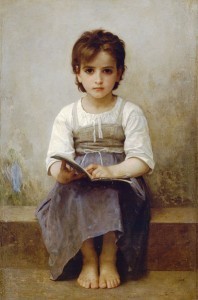 I've only flicked through the latest Viewpoint, but a review of Aimee Said's Little Sister and Sarah Dessen's What Happened to Goodbye caught my eye, because the first sentence of the review states that "these are most definitely Girl Books". I GIVE UP! No, wait, I don't. I just finished reading the review by Jenny Zimmerman. It is mostly positive about both books, but concludes:
I've only flicked through the latest Viewpoint, but a review of Aimee Said's Little Sister and Sarah Dessen's What Happened to Goodbye caught my eye, because the first sentence of the review states that "these are most definitely Girl Books". I GIVE UP! No, wait, I don't. I just finished reading the review by Jenny Zimmerman. It is mostly positive about both books, but concludes:
"I must protest about the deeply unhelpful message in almost everything aimed at adolescent girls. You know the one: Then She Met a Perfect Guy and Lived Happily Ever After . . . Mr Right is out there and waiting to rescue you from eating disorders, teen pregnancy, parental divorce or bullying. Unless there's something profoundly odd about you, you will find him any day now. Is this what readers demand, or what writers feel must be included in fiction for young women? Yes, falling in love is a huge part of being a teenager, but it would be nice to come across some YA fiction which doesn't assume that a girl without a boyfriend is an unfinished story."
Well, I can think of a few YA novels that end with "a girl without a boyfriend". All of my novels, for example. At the end of The Rage of Sheep, Hester drives off with her trusty dog and her Walkman, perfectly capable of solving her own problems – and I can't imagine any of the FitzOsborne girls waiting around for a boy to rescue them.
August 4, 2011
Eats, Shoots and Leaves: The Zero Tolerance Approach to Punctuation by Lynne Truss
I've spent most of this year reading depressing non-fiction about the Second World War, but after I handed Montmaray Three over to my publisher, I gave myself permission to read anything I wanted. Something fun! So I decided to read a book about punctuation.
I heard a lot about this book when it first came out, but the author came across as kind of bitter and humourless in interviews, so I thought I'd give the book a miss. Readers, I was totally wrong. Not only is this book hilarious, it could have been written specifically for me. As Lynne Truss says, it is a book for punctuation sticklers:
"Part of one's despair, of course, is that the world cares nothing for the little shocks endured by the sensitive stickler. While we look in horror at a badly punctuated sign, the world carries on around us, blind to our plight. We are like the little boy in The Sixth Sense who can see dead people, except that we can see dead punctuation . . . No one understands us seventh-sense people. They regard us as freaks. When we point out illiterate mistakes we are often aggressively instructed to 'get a life' by people who, interestingly, display no evidence of having lives themselves."
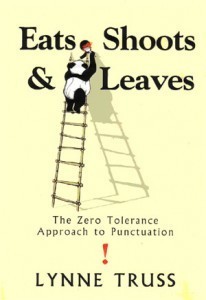 Ms Truss is the sort of person who stands outside cinemas "with a cut-out apostrophe on a stick" in order to demonstrate how to punctuate the film title Two Weeks Notice. However, she readily acknowledges that the rules of punctuation are complex, that rules vary between nations (and even between publishers) and that one stickler's pet hate might not be shared by another stickler. She is not a pedant. She loves punctuation because it helps us understand what we're reading, and she hates punctuation errors because they cause confusion. For example, look at how punctuation alters the meaning of these two sentences:
Ms Truss is the sort of person who stands outside cinemas "with a cut-out apostrophe on a stick" in order to demonstrate how to punctuate the film title Two Weeks Notice. However, she readily acknowledges that the rules of punctuation are complex, that rules vary between nations (and even between publishers) and that one stickler's pet hate might not be shared by another stickler. She is not a pedant. She loves punctuation because it helps us understand what we're reading, and she hates punctuation errors because they cause confusion. For example, look at how punctuation alters the meaning of these two sentences:
"A woman, without her man, is nothing.
A woman: without her, man is nothing."
She claims the book is not a punctuation guide, but it does provide clear instruction in how to use apostrophes, commas, semicolons, colons, exclamation marks and other forms of punctuation. I particularly liked her discussion of the comma, which demonstrates her pragmatic approach to punctuation:
"See that comma-shaped shark fin ominously slicing through the waves in this direction? Hear that staccato cello? Well, start waving and yelling, because it is the so-called Oxford comma (also known as the serial comma) and it is a lot more dangerous than its exclusive, ivory-tower moniker might suggest. There are people who embrace the Oxford comma and people who don't, and I'll just say this: never get between these people when drink has been taken . . . My own feeling is that one shouldn't be too rigid about the Oxford comma. Sometimes the sentence is improved by including it; sometimes it isn't."
[Evidence for the passion the Oxford comma evokes can be found in this post at Bookshelves of Doom. And don't you love that American commenter who chose to study at a British university, then was outraged that the British professors wanted her to use British punctuation? The nerve of them!]
Eats, Shoots and Leaves also contains some fascinating historical facts about punctuation, and an interesting discussion of the future of punctuation in a world of e-mails and texting. My only criticisms of the book are minor. Firstly, it lacks an index. I think it ought to be compulsory for all non-fiction books to have an index. (Actually, it would be quite nice if fiction books had them, too, so that I could go straight to my favourite bits when re-reading a novel. I can see that constructing an index for a novel could be rather difficult in practice, though.) Secondly (and this isn't the author's fault), the edition I read was written in 2003 for a British readership, so it was not completely relevant for this Australian punctuation stickler. Nevertheless, Eats, Shoots and Leaves is a terrific read and I heartily recommend it for fellow sticklers.
August 2, 2011
Book Giveaway Winners!
Thank you to all those readers who let us know about some of their favourite books. Congratulations to Hermina, Freya, Lindy, Maddy and Cassy, who each won a signed copy of The FitzOsbornes in Exile. To those who missed out this time, don't despair – I'll give away some more books later this year.
(Freya and Maddy – check your e-mail inbox!)
August 1, 2011
Hermione Granger Rules The World
I love the Harry Potter books, but I also agree with Sady Doyle's feminist criticisms of them. Ms Doyle discusses the REAL hero(ine) of the books in her article, In Praise of Joanne Rowling's Hermione Granger Series, and follows this up with The Further Adventures of Hermione Granger. Both articles are well worth a read, if you're interested in either Harry Potter or the way girls are portrayed in popular culture.
(Thanks to Read Plus for the link.)
July 29, 2011
Miscellaneous Memoranda
I'm officially on holiday this fortnight, and I think I've lost the ability to construct proper paragraphs. However, here are some things I noticed, but was too busy to post about, during the past month or so:
Kate Beaton put up some new Julius Caesar comics on her website. Here's Part One. Part Two involves Cassius glaring actual daggers at Caesar, and the introduction of the truly awesome Dogs of War (even if one of them looks more like a Bunny-Rabbit of War).
Montmaray has also popped up on NationStates. It used to be The Kingdom of Montmaray, but is currently The Incorporated States of Montmaray and is ruled over by a "corrupt dictatorship". Its "national animal is the Blue Heeler, which frolics freely in the nation's many lush forests" and "an increasing percentage of the population's youth have homosexual parents". (I had nothing to do with this, I swear.)
Two authors, Katie Crouch and Grady Hendrix, have also published an article about their experiences writing YA fiction. Apparently, writing for teenagers means throwing aside all the rules for good writing, because:
". . . readers in Y.A. don't care about rumination. They don't want you to pore over your sentences trying to find the perfect turn of phrase . . . In Y.A. you write two or three drafts of a chapter, not eight."
Oh, really? But the funniest bit was:
"The average length of time you get to write a Y.A. book is six months. Compared with 'literary' fiction, that's warp speed."
SIX MONTHS? I spent longer than that just doing the research for my last book. Gosh, I wish someone had told me earlier that I didn't need to put any thought or care into my YA novels. Think of all the time and energy I would have saved myself. Also, apparently 'YA fiction' and 'literary fiction' are mutually exclusive categories. Has anyone told M. T. Anderson, Margo Lanagan or Sonya Hartnett this?
I'll be back soon (as soon as I've remembered how to write in paragraphs) to post a rant and a rave about some books I've recently read. In the meantime, don't forget my book give-away is still on.
July 18, 2011
The FitzOsbornes in Exile Book Giveaway
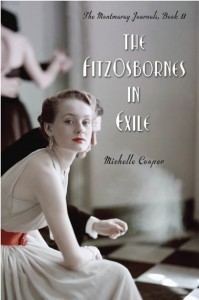 Montmaray Book Three has been handed over to my publishers, so to celebrate, I'm giving away five signed copies of Montmaray Book Two. Yes, that's the lovely North American hardcover edition of The FitzOsbornes in Exile, with the glamorous girl on the cover. This particular giveaway is just for Australians and New Zealanders, because they are special. (Actually, if you're from elsewhere in the world, but have an Australian or New Zealand postal address, you can enter, too.) All you need to do is leave a comment below, telling us the title of a book you've recently enjoyed.
Montmaray Book Three has been handed over to my publishers, so to celebrate, I'm giving away five signed copies of Montmaray Book Two. Yes, that's the lovely North American hardcover edition of The FitzOsbornes in Exile, with the glamorous girl on the cover. This particular giveaway is just for Australians and New Zealanders, because they are special. (Actually, if you're from elsewhere in the world, but have an Australian or New Zealand postal address, you can enter, too.) All you need to do is leave a comment below, telling us the title of a book you've recently enjoyed.
Here are the conditions of entry:
1. You can mention any kind of book you've enjoyed – young adult, children's, fiction, non-fiction. You don't have to say why you enjoyed it, but you can if you'd like. There are no wrong answers!
2. Make sure the e-mail address you enter on the comment form is a valid one, so I can contact you if you win (no one will be able to see your e-mail except me). Please don't include your real residential or postal address anywhere in the comment.
3. The five winners will be chosen at random, unless there are five or fewer comments – in which case, it won't be random and ALL will have prizes.
4. Entries close on the 31st of July, 2011. The winners will be e-mailed then, and I will send off the winners' books as soon as possible after that.
5. Remember, Kangaroos and Kiwis only for this giveaway.
The End of Montmaray
In the small hours of this morning, I e-mailed the manuscript of the third Montmaray book to my publisher.
The author wonders how many exclamation marks to add after writing, 'The End'
The final book in the trilogy. The end of The Montmaray Journals. Farewell to the FitzOsbornes, who've been hanging out in my head for the past seven years. If I weren't so sleep-deprived, I might actually feel a bit sad about this.There's quite a lot of work to do before the book appears on bookshelves – some of it to be done by me, much of it by the talented, hard-working people at Random House. Structural editing, copy-editing, fact-checking, type-setting, proof-reading, designing an appealing cover, making sure the real people in the book who are still alive aren't going to sue me for defamation of character . . . But at some point next year, the book will be released in Australia, all things going well. Here's what I can tell you about it:
It follows the fortunes of the FitzOsbornes throughout the Second World War and beyond.
It contains dashing young men in uniform, brave young women in uniform, spies, diplomats, secret agents, scary bombing raids, fiery plane crashes, funerals, weddings, heartbreak, despair, courage, determination and a hopeful ending. And also, kissing.
If the first book was Sophie's coming-of-age and the second was Veronica's, then this one is Toby's.
The novel is ridiculously long, although I'm hoping my brilliant editors will provide some suggestions for trimming it, because otherwise, the hardcover edition is going to weigh a tonne and a half.
The novel may or may not be called The FitzOsbornes at War.
Any of this might change between now and the (still unknown) publication date, of course.
To celebrate finishing this manuscript (and also because I've had three boxes of books cluttering up my flat for weeks, but have been too busy to find somewhere to put them), I'm giving away some copies of The FitzOsbornes in Exile. See here for details.
June 26, 2011
Oh, Goodreads . . .
If I were a Sensible YA Author, I'd stay well away from Goodreads reviews of my books. After all, reviews aren't for authors; they're for readers. Of course, I'm not a Sensible YA Author (if I was, I'd be writing about zombie mermaids, not 1930s politics), so I do occasionally visit Goodreads, where I get to read one-star reviews like this [warnings for plot spoilers and homophobia]:
"The story was interesting and engaging until the end when the author suggests the boys are lovers. WHY? For a young adult book–or any for that matter? Too bad Ms Cooper ruined the book."
That was the entire review – and that's a very polite, positive and coherent review, compared to some of them.
But then, there are also Goodreads reviews that are critical, yet thoughtful and entertaining, such as this one of A Brief History of Montmaray, which begins:
"Michelle Cooper is the Quentin Tarantino of young adult novels."
Um . . . what? It turns out the reviewer isn't referring to the gory murders in the book, but to Tarantino's habit of wearing his influences on his sleeve. The review consists largely of complaints about the characters and the plot, but it's smart and passionate and, most importantly, uses LOLcats to illustrate its points. I loved it.
Then the same reviewer tackles The FitzOsbornes in Exile:
"Dear sir or friend,
I am a princess in exile. My family cannot access our funds unless you, a kind American, will launder money through your bank account and send letterhead, bank statements and personal documents. Thank you for helping.
Sincerely,
the FitzOsbournes
I don't know why they didn't just send out a letter like this, if they needed money so bad . . ."
The review goes on to compare the plot of The FitzOsbornes in Exile to that of the recent X-Men film, and regards Simon as the Clark Gable of Montmaray. It's absolutely hilarious. Thank you, Mariel, you made my day. Well, my morning, at least. Or part of my morning.
Now, to slightly more serious matters. Here is my blog's Spam of the Month:
"Dude, you should be a writer. Your article is really interesting. You should do it for a living."
Okay then, I will! Unfortunately, I'm finding 'writing for a living' a bit busy at the moment, so my poor blog has been neglected this month. However, in a few weeks, I will (hopefully) have handed over the manuscript of Montmaray Three (currently known as The NeverEnding Story) to my long-suffering and infinitely patient editor. Then I'll return to my irregular – but slightly more frequent – blog posting.
In the meantime, just talk quietly amongst yourselves.
May 31, 2011
A Public Service Announcement: Smoking Is Bad For You
As I've previously mentioned, I love the North American cover of The FitzOsbornes in Exile, which features a girl in a glamorous 1930s ballgown. One of the shadowy figures in the background is a young man who seems to be smoking a cigarette, and I did wonder how long it would be before someone objected to this. Not very long at all, it turns out. A few weeks after the book was released, this US librarian commented about it on her blog:
"It's probably a good idea when you market a book for teens that the cover image not feature things that teens can't do – so, having someone drinking on the cover isn't usually a good idea. Neither is smoking."
Yes, he's smoking – but that doesn't mean YOU should smoke
The librarian was far more observant than I was, because she noticed that the cigarette in the young man's hand had been Photoshopped out of existence – and that was before she compared the cover to the look-alike cover of Consequences of the Heart, in which the cigarette is clearly visible. I'd just assumed 'my' young man was holding a cigarette and that the camera angle meant the cigarette was hidden behind his fingers. It's obvious that a white cloud is hovering next to his hand, and I imagined most people would assume he was smoking. Characters in the book smoke, so why shouldn't characters on the cover do the same thing?I can see why responsible adults might be concerned about this. Smoking is bad; therefore, we should make sure that all images of smoking are unappealing, especially if they're going to be seen by impressionable teenagers. The question is whether art and literature should be censored to achieve a social aim, and whether such censorship is actually effective in achieving those aims.
I should say here that I've never smoked. I loathe the smell of cigarettes and I wish everyone in the world, but especially people in my apartment building, would stop smoking. I also worked as a speech pathologist for fifteen years and not many speech pathologists smoke, because we have a very clear understanding of the awful health problems caused by smoking (and those dissected tar-soaked lungs they insisted on showing us during our university anatomy lessons were fairly off-putting, too).
However, I also write historical novels, which I try to make as realistic as possible, and the fact is, attitudes to smoking were quite different in the past. I've seen 1930s advertisements in which 'doctors' solemnly claimed that a certain brand of cigarette was a healthy way to relieve stress. No one knew about lung cancer or laryngeal cancer or heart disease then. (Actually, some of the first research into the health dangers of smoking was carried out by a Nazi doctor on the orders of Hitler, a non-smoker). In 1930s England, most men smoked some form of tobacco, and ladies who wished to be thought of as 'sophisticated' carried around little silver cases of cigarettes. And is there a photograph in existence of Winston Churchill without his cigar?
It would be ridiculous if none of the dozens of characters in The FitzOsbornes in Exile smoked, but I did think carefully about who would smoke. Of the young characters, Sophie and Veronica are too well brought up (and impoverished) to have developed a cigarette habit. Julia, despite her sophistication, is never seen smoking. Rupert's health problems preclude him taking up smoking. Daniel either doesn't have the money to buy cigarettes, or doesn't want to support capitalist tobacco companies. The only main characters identified as smokers are Toby, who mentions cadging cigarettes at the beginning of the first Montmaray book, and Simon, who's occasionally seen lighting the cigarette of a woman he's trying to seduce. I don't think either of these characters could be regarded as good role models for teenagers. Toby has a perpetual hangover and gets expelled from a series of educational institutions, while Simon's morals are ambiguous, to put it generously. I don't think any non-smoking teenager is going to read The FitzOsbornes in Exile and think, "Gosh, I want to be just like Toby and Simon! I'm going to start smoking!"
Come to think of it, even the 'good' FitzOsbornes behave in ways that are not terribly healthy. They speed around the countryside in a sports car while not wearing seatbelts, eat pastries laden with refined sugar and full-fat cream, and taunt Nazis from the windows of slow-moving trains. But I really don't think my readers are going to emulate any of those behaviours. (Apart from eating cakes – and I'm sure my readers would consume them in moderation and then incorporate an appropriate amount of exercise into their daily routines.)
However, is it possible that teenagers might see the cover of The FitzOsbornes in Exile in a school library or a bookshop, and, not having read the book, start to think, "Smoking is cool"? Yes, it's possible. They could also get the same idea from watching Humphrey Bogart and Lauren Bacall in The Big Sleep, or from viewing any number of modern films. It's far more likely they'd be influenced by the attitudes of their friends and family.
So, I have to say to teenagers: if you're reading this and you're tempted in any way, for whatever reason, to start smoking, DON'T DO IT! SMOKING IS BAD FOR YOU!
You're allowed to read my books, though, if you really want.

